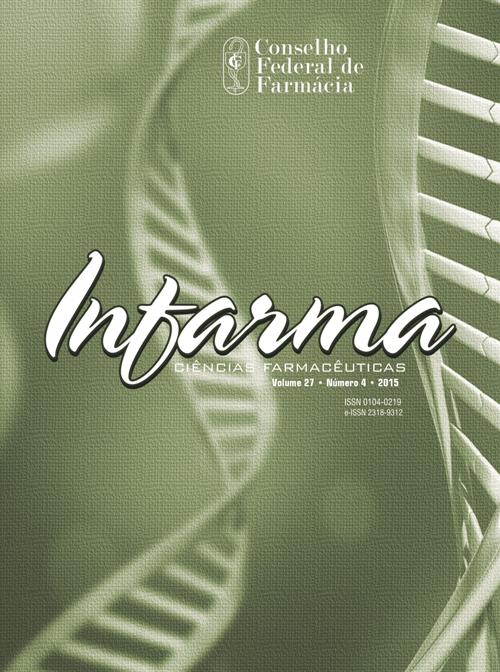COMPLEXITY OF PHARMACOTHERAPY IN ELDERLY ATTENDED ON A BASIC PHARMACY IN SOUTHERN BRAZIL
DOI:
https://doi.org/10.14450/2318-9312.v27.e4.a2015.pp239-247Keywords:
elderly, pharmacotherapy, medication adherenceAbstract
The complexity of a pharmacological treatment can lead to a lack of adherence to the proposed treatment and consequently damage the recovery of the patient’s health. The objective was to evaluate the complexity of the treatment regimen used by elderly patients attended in Basic Pharmacy of Santa Cruz do Sul, RS, and associated factors. I was done a cross-sectional study with data collection in the period from August to September 2014, through individual interviews with a semi-structured questionnaire containing sociodemographic variables, behavioral, health and pharmacotherapy variables. The therapeutic complexity index (TCI) was obtained by direct measurement of the necessary actions to administer the medicine. 300 elderly were interviewed; 76.7% were female, 70% aged 60-69 (± 6) years, and 77% had physician consultation in the last six months. The most cited diseases were hypertension (44.3%), depression (43%), high cholesterol (32%), diabetes (21%) and osteoporosis (20.7%). In the 15 days preceding the interview, the interviewers took a total of 1088 medicines (mean = 3.6 (± 1.74)). The TCI ranged from 1 to 30 (mean = 6.67 (± 5.35)) with statistically significant association (p < 0.05) with the female, referred diseases (diabetes, high cholesterol, osteoporosis, bronchitis, hypertension), take several medications at the same time and non-adherence to treatment. The evaluation of the complexity of pharmacotherapy is necessary and important for the restoration and maintenance of elderly’s health. Simplifying treatment regimens can improve medication adherence and benefit on the outcome of therapy, allowing an understanding and a more accurate approximation of the elderly with their treatment.
Downloads
Published
How to Cite
Issue
Section
License
Authors who publish in this journal agree to the following terms:
- Authors retain the copyright and grant the journal the right of first publication, with the work simultaneously licensed under the Licença Creative Commons Attribution which allows the sharing of work with acknowledgment of authorship and initial publication in this journal.
- Authors are authorized to take additional contracts separately, for non-exclusive distribution of the version of the work published in this journal (e.g. publish in institutional repository or as a book chapter), with acknowledgment of authorship and initial publication in this journal.
- Authors are allowed and encouraged to publish and distribute their work online (e.g. in institutional repositories or on their personal page) at any point before or during the editorial process, as this can generate productive changes as well as increase the impact and Citation of published work (See O Efeito do Acesso Livre ).


